Fayette’s stinky water problems appear to have mostly dissipated.
Water System Director Tony Parrott said Tuesday that his office has received only one complaint about water since Sunday, and that caller appeared to have a situation unrelated to the problem that distributed millions of gallons of bad smelling, and bad tasting, water to Fayette homes and businesses for a period of more than three weeks.
With the help of a water treatment expert contracted by the county and also the Georgia Environmental Protection Division, the problem was narrowed down to two chemicals emitted by blue-green algae, a tiny plant that grew both in Starr’s Mill Pond — the water intake point — and in the holding pond for fresh water at the Crosstown Water Treatment Plant itself. Despite the bad smell and odor the water was never dangerous to drink, county officials have said from the beginning.
Parrott also said the county is instituting daily raw water tests to determine if there are problems with the water before it enters the water treatment plant for processing.
Parrott issued an apology Friday because in his words it took “too long” to fix the problems with the smelly water that led residents and restaurants to seek bottled water and other resources to cook and drink with.
“I truly apologize for the inconvenience we created for our water customers,” said Parrott. “The problem took too long to resolve and I want to assure the public that we have implemented daily raw water testing to assure we are obtaining water of the highest quality into the treatment facilities.”
Anyone with lingering taste and odor problems with their water is urged to call the water system at 770-461-1146.
It took dozens of angry calls from irate water customers and many days before the system technicians finally figured out they had fingered the wrong culprit — a water temperature inversion — and the wrong lake — Lake Peachtree — as the source of the problems.
In addition to finding the true source of the problem at the Starr’s Mill Pond, the county’s water treatment expert from CH2M Hill also found a problem with the lagoons used to hold “backwash water” from the Crosstown Water Treatment Plant which contained solids from when the filters were cleaned at the plant. Those lagoons, used to allow solids to separate from the water, had not had sludge removed since 1999, county officials have said, yet the water from those lagoons was being recycled back into the plant’s treatment process.
A contractor was working on removing the sludge from one of the two lagoons Monday after the lagoon was drained by the Peachtree City Water and Sewer Authority, which was pumping the water to its sewage plants for treatment. The removal process used a blast of pressurized water to loosen the sludge so it could be pumped out to a truck for off-site disposal.
Photo below shows piping installed by WASA to pump sludge to a sewer manhole 2,700 feet away. Photo/John Munford.
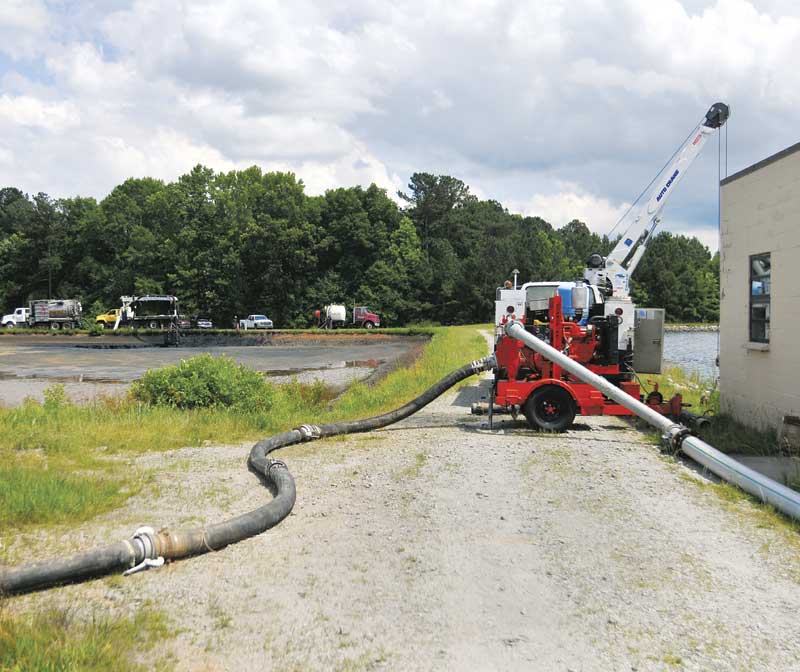
The Georgia Environmental Protection Division has signed off on all the remediation at the Crosstown Water Treatment Plant recommended by the county’s consultant.
Water tests from the Starr’s Mill Pond that came back May 29 showed high readings of two byproducts of the blue-green algae: geosmin and 2-methylisoborneol (MIB), county officials said. The geosmin was also found in the raw water reservoir at the Crosstown Water Treatment Plant, where water is stored prior to being treated at the plant, officials said.
WASA General Manager Stephen Hogan said handling the lagoon water was not causing any difficulties at WASA’s sewer treatment plant and was very similar to the authority handling a heavy rainfall, which brings more water into the system for treatment.
“It looks just like a rain event to us,” Hogan said.
WASA was able to use its emergency contractor to lay pipe extending from the lagoon area to a sewer manhole about 2,300 feet away. From the time WASA was asked to assist, the pipe was in place some 36 hours later, officials said.
Hogan lauded WASA staff for pitching in to help the water system while also continuing to handle their regular duties.
WASA Chairman Mike Harman said the reason WASA was able to help so quickly is because it had an existing contract for emergency sewer pipe construction, which allowed for a quick mobilization of the contractor at a fixed cost based on the pipe size.
More photos of the dredging operation below:
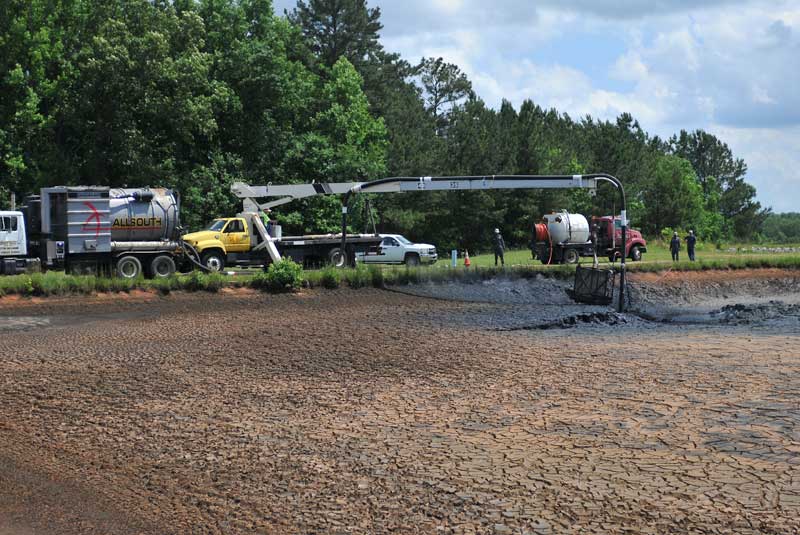
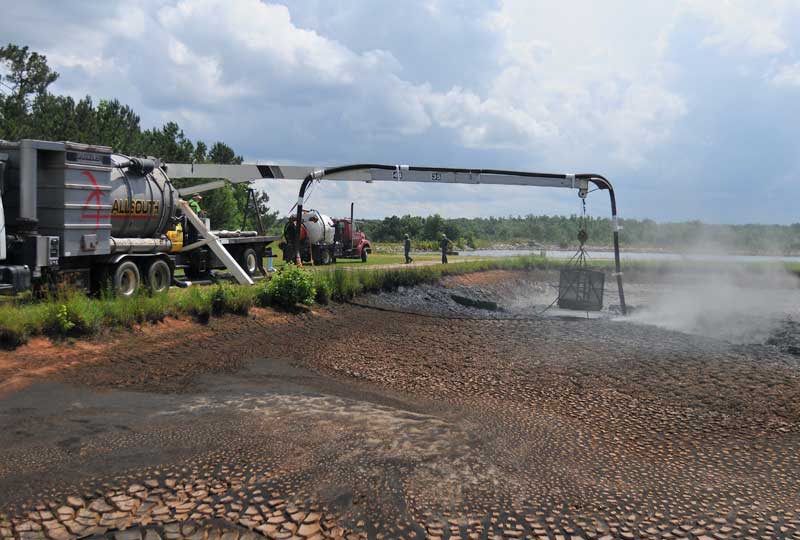
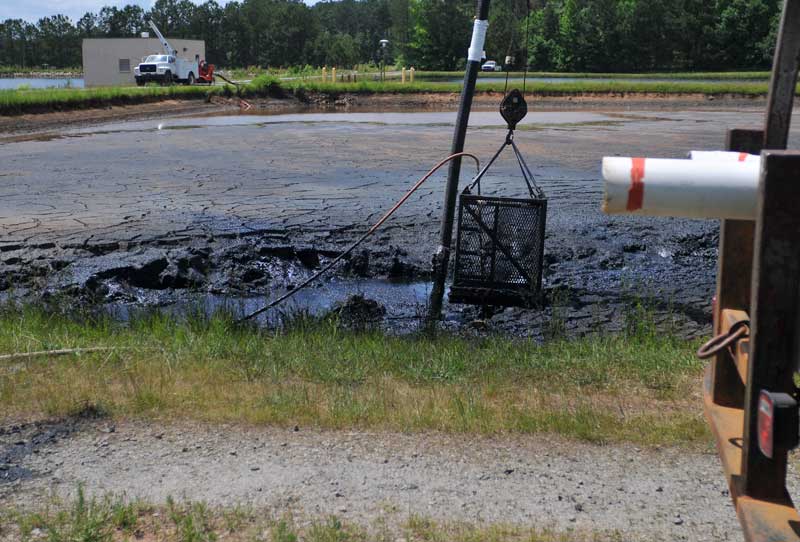
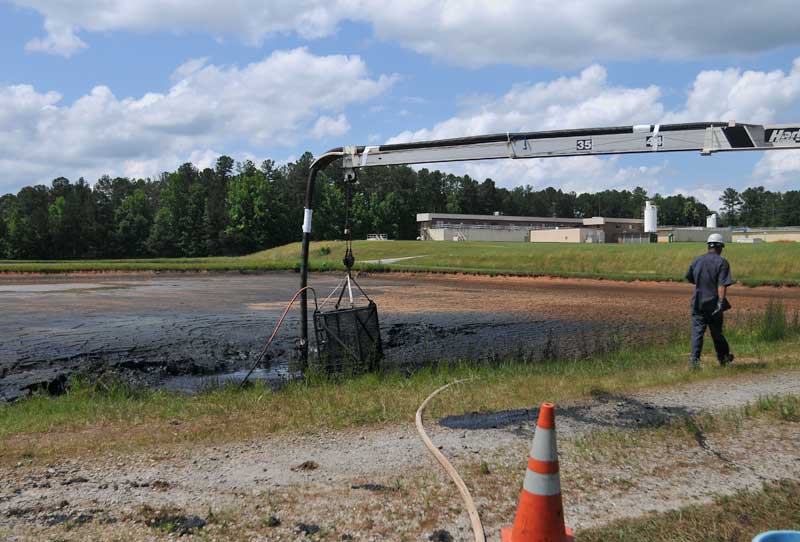
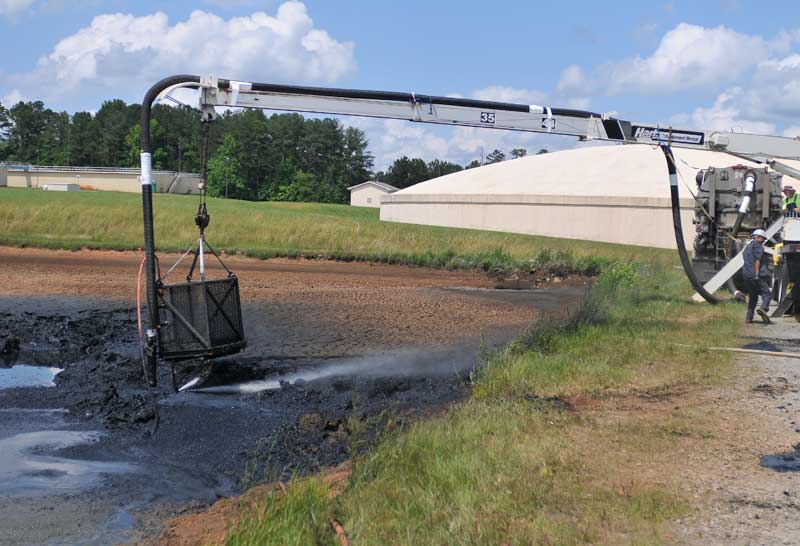
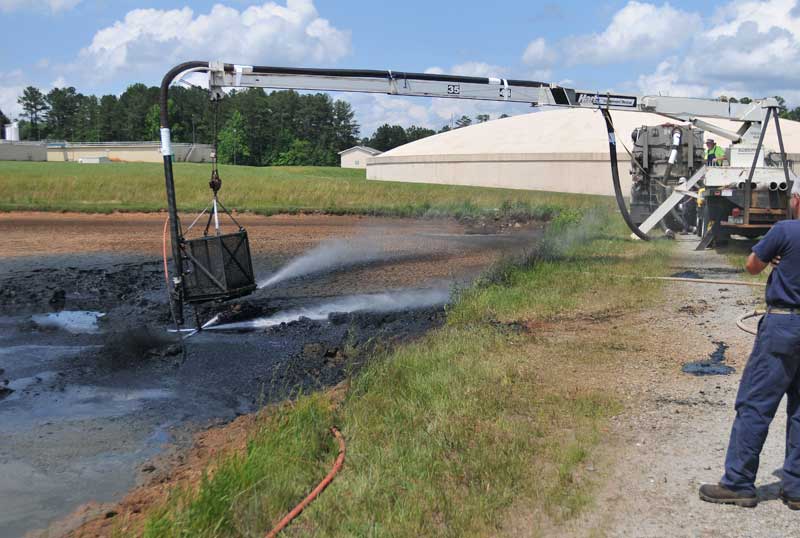











Leave a Comment
You must be logged in to post a comment.